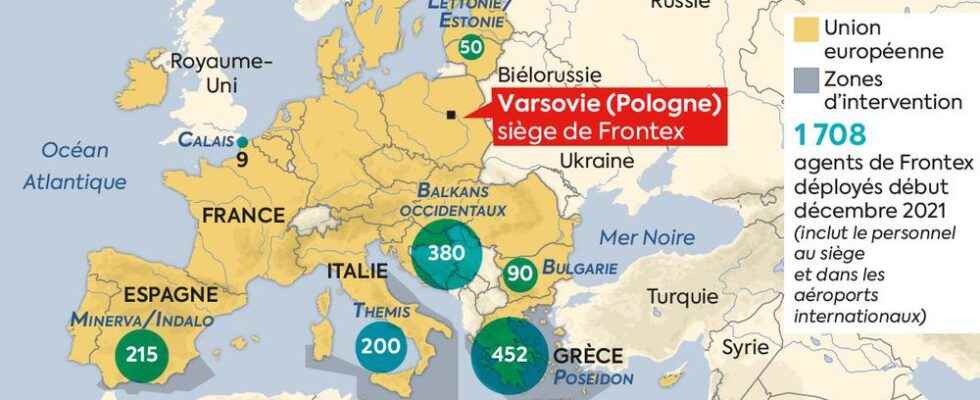No one can ignore it anymore, Emmanuel Macron intends to make the reform of Schengen one of the main priorities of the French presidency of the European Union. In order to “regain control of the borders and our space”, he recalled in Strasbourg, on January 18. An ambition that comes up against European disunity, glaring on migration issues. Paris, however, hopes to advance the texts already on the table and put forward new ideas. The French president plans to detail them in person to the European interior ministers who will meet in Tourcoing on February 2 and 3. A speech of about thirty minutes would already be on the program.
Basically, the big piece remains the migration pact. This package of legislation presented in September 2020 was to overhaul asylum and migration policy; he is bogged down. After working with Berlin, the French want to bring it back to life, through “a gradual approach intended to recreate confidence”, explains a minister. To begin with, they want to make progress both on the systematic filtering of migrants at the borders and on the distribution among the Twenty-Seven of those who are rescued at sea. One way of reconciling the interests of the countries of arrival, such as the Italy or Greece, and the desire for tighter borders.
Paris also wants to put the turbo on the reform of the Schengen code, which specifies under what conditions controls can be restored at national borders. Under pressure from France, the European Commission has tackled the movement of migrants within the Union. But it is making people cringe in the frontline countries. “Being concerned with secondary movements before settling the question of arrivals is absurd,” said an Italian diplomat.
Towards a “more political steering”
Overall, France dreams of a Schengen area with “more political management”. In November 2020, the Elysée Palace had already put forward the idea of a “Schengen Council”, which, like the Eurogroup, the meeting of ministers of the euro zone, would be very “operational”. It would make it possible to implement the latest hexagonal proposal, the emergency mechanism. Without going through the European Border Guard Agency, countries could organize themselves to quickly provide human and material support to a border, to Poland or Lithuania facing Belarus, for example. A form of disavowal for Frontex. “The agency costs 1 billion euros per year to the European budget, with an obligation for the States to supply it with personnel. Why provide, in addition, a bilateral mechanism?”, wonders an expert, unconvinced. For Paris, it is a question of obtaining the good graces of Poland or Greece. Valuable allies, if the Elysée wants to make progress on this strategic Schengen priority…
Infographics
Dario Ingiusto / L’Express
Because for Emmanuel Macron, the issue is eminently political, a few weeks before the presidential election, while his opponents on the right and the far right intend to place immigration at the heart of the debates. However, the assessment of migratory flows for 2021, presented on January 20 by the Ministry of the Interior, shows that the executive, even taking into account the difficulties linked to the health situation, is far from having achieved its objectives. In the fall, the Head of State announced the halving of visas granted to Moroccan and Algerian nationals (one third for Tunisia), as long as these countries did not grant more consular passes, essential sesame when illegal immigrants return to their country of origin.
At the start of 2022, the Ministry of the Interior recognized that with the exception of Tunisia, the effect had been “more qualitative than quantitative” on returns. All countries combined, removals remain at half the levels of 2019.
Another subject on which the Head of State needs a European policy: asylum applications. Indeed, the “secondary movements” of people who have already been rejected in another European country still represented 30% of the files submitted to the French Office for the Protection of Refugees and Stateless Persons in 2021. “Asylum tourism” , according to the popular expression Place Beauvau, which weighs on accommodation capacity and contributes to the establishment of migrant camps, rejected by public opinion. Hence the urgency for Emmanuel Macron to finally obtain from his European partners reforms that have been repeatedly postponed.
